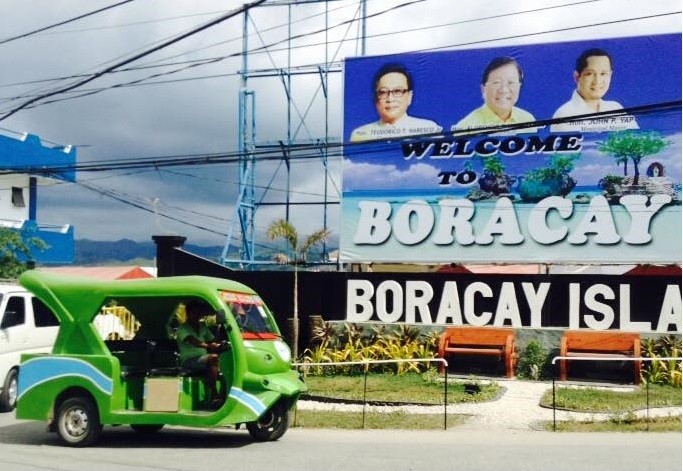
December 2015—Quiet and clean, e-trikes are all the rage on the streets of Borocay Island in the Philippines. These electric-powered bikes are replacing ubiquitous gasoline-operated tricycles that are one of the main sources of transportation.
The gasoline tricycles are also a major source of pollution—approximately 3.5 million fill the major cities in the Philippines, producing over 10 million tons of carbon dioxide each year. And according to the Asian Development Bank, switching to electric tricycles can reduce the greenhouse gas impact of gasoline tricycles by 54 percent.
According to the World Health Organization, poor air quality from outdoor air pollution in urban areas causes respiratory diseases, such as acute and chronic bronchitis and pneumonia, and cardiovascular disease. These diseases represent an estimated 5 percent of all reported disease cases and 4 percent of all reported deaths in the country.
With help from USAID through its Private Financing Advisory Network (PFAN)-Asia program, Philippines-based electric vehicle manufacturer GerWeiss Motors Corp. secured a loan of up to $330,000 from a local finance company to produce more e-trikes as it expanded its business.
“Being a small business, we are lucky to meet USAID PFAN-Asia,” said Sean Gerard Villoria, founder of GerWeiss Motors. “We’ve received technical support with our business plan and financial statement. Without USAID support, we would not have access to this loan.”
In 2012, the Philippines Government initiated the electric tricycle program throughout the country. Based on a one-year trial, e-trikes have proven to reduce local air pollution and lower fuel and maintenance costs.
GerWeiss Motors currently has an agreement with the local government to reduce pollution on Boracay Island, a popular tourist destination. The company is working to replace over 500 gasoline tricycles on the island and plans to expand its business into solar-powered charging stations for e-trikes. The battery-swapping system allows the vehicles to run with minimal downtime.
Villoria hopes to expand to the capital of Manila, where an estimated 200,000 gas-run tricycles are still in use.
The PFAN-Asia program, which runs from 2013 to 2018, helps companies pitch their projects to investors and improve their work plans. The program is working to allocate at least $1 billion in funds directly or indirectly for clean energy investments that will avoid or reduce greenhouse gas emissions and increase access to more sustainable clean electricity. To date, the program has assisted 13 companies to mobilize clean energy financing worth a total of $165 million. The program also helps to create self-sustaining, long-term access to regional clean energy financing.
LINKS
Follow @USAIDAsia, on Facebook, on Flickr, on YouTube







Comment
Make a general inquiry or suggest an improvement.